Reading, MA — Three major presentations dominated the School Committee meeting on Thursday, October 14: the Youth Risk Behavior Survey Results (YRBS), general findings from RMHS Principal Kevin Tracey’s entry plan, and an overview of the spring 2021 MCAS data.
Director of the Coalition for Prevention and Support, Erica McNamara, shared data from the spring YRBS. She included positive data such as a 16% increase in the reported rate of eight-hour sleepers, though 1% indicated not having a safe place to sleep at night. The survey also indicated a 50% decline in alcohol use from 20 years ago. McNamara also reported that drug use rates are trending downward, though fewer students report a risk associated with marijuana use.
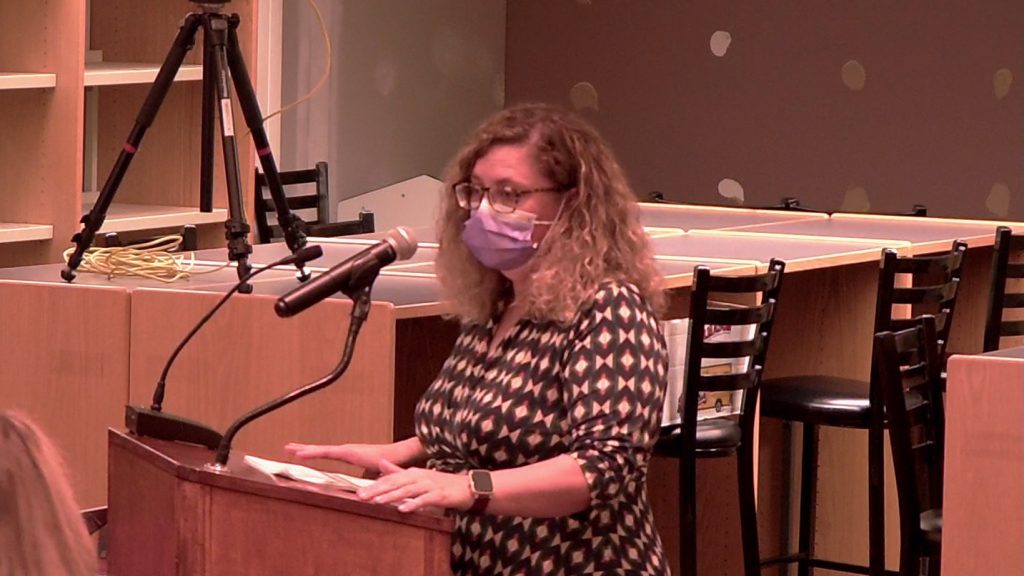
Twenty-three percent of middle school students indicated their mental health was not good, with 31% of high school students sharing the same. Fifty percent of middle school students and 52% of high school students indicated having difficulty concentrating or making decisions. McNamara continued to comment that these numbers are not dissimilar to numbers seen in adults during the pandemic. “We have a lot of unresolved trauma that we still haven’t dealt with,” McNamara stated.
McNamara also shared a rising rate of students reporting depression and non-suicidal self-injury. She also indicated a 20% drop in the number of students reporting that they have a trusted adult at school to whom they can talk. “[The schools] did what they had to do to get through [pandemic learning], but there was an impact on relationship building,” McNamara continued.
Troubling statistics include the nine middle school and 31 high school students students who reported being forced into sexual intercourse and the 19% of middle school students and 36% of high school students who reported engaging in “sexting” activities. This was added to the 17% who reported seeing or hearing racially discriminatory actions at school from students, teachers, or staff. “Young people of color are going to experience the world differently than those of white backgrounds,” McNamara commented.
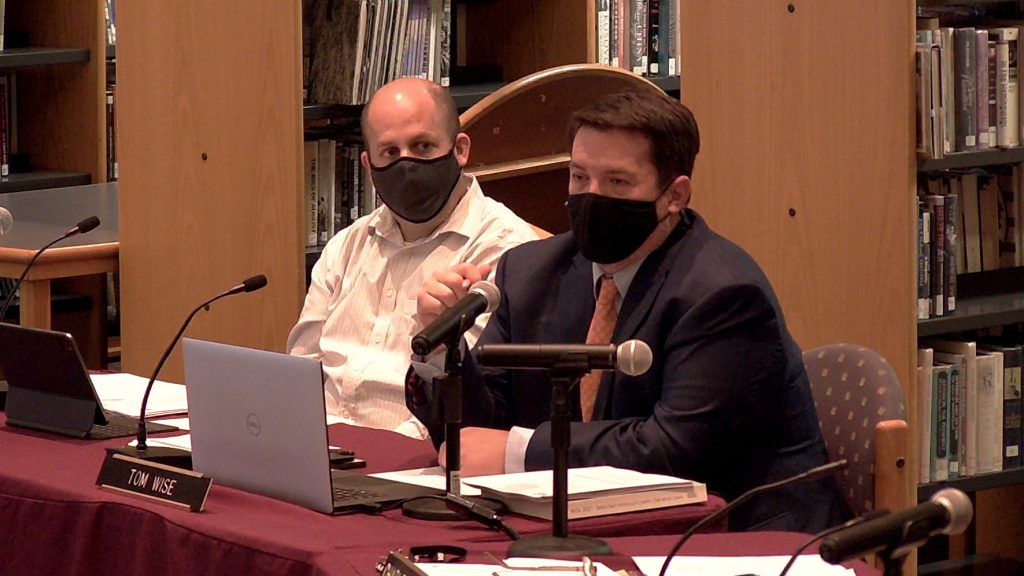
School Committee member Shawn Brandt referred to the results as “sobering.” Member Erin Gaffen concurred with Brandt, adding that the importance of creating school and district climate “came through loud and clear.” As the committee begins its budget season, Member Chuck Robinson asked what supports may be needed to do better. McNamara responded by suggesting more programming at tier one, reducing the number of students in tiers two and three.
RMHS Principal Kevin Tracey followed, sharing some “general findings” from his school review entry plan. He started with observations about a return from pandemic learning. “Relationships are everything,” Tracey began. “The challenge of building those relationships remotely is exhausting.” He continued, “I come positive, hopeful, and energized, and we will see big changes by the end of the year.”
Tracey began by listing some areas of strength at the school. These include the personnel, from teachers to guidance, other support staff, the rich and diverse course offerings, departmental cohesion, resources, and a robust athletics and extra-curricular program. He did address the amount of leadership turnover in the past ten years stating, “Department chairs have been the through-line that have kept the school moving forward.”
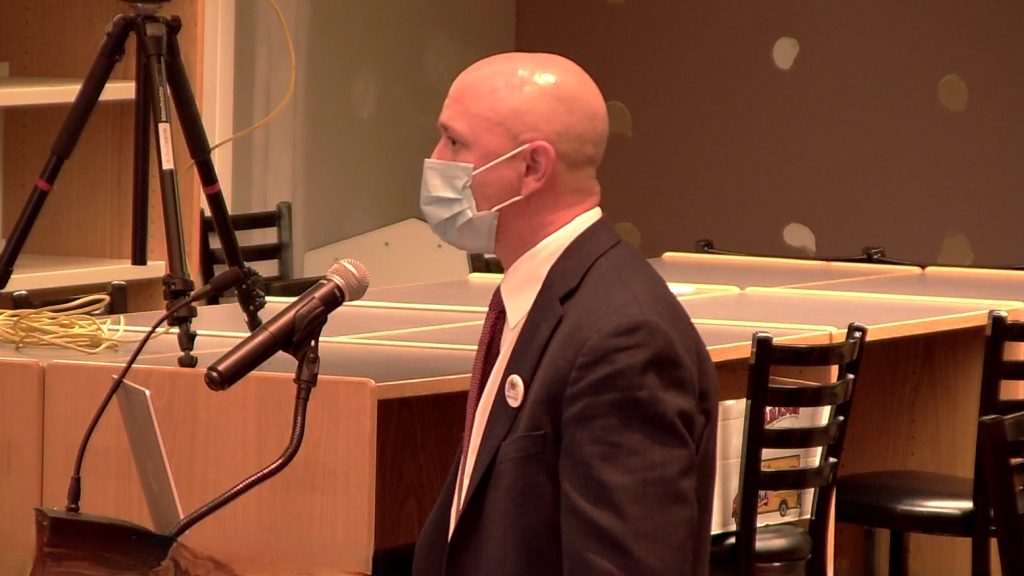
Tracey also listed areas that need attention at RMHS. He discussed school culture, climate and equity, and a fracturing amongst the student body, including a lack of trust in leadership. “That’s what I have to earn,” he stated frankly. Tracey continued with other focus areas such as community partnerships, communication, curriculum and assessment, time in learning, and professional development. “An hour a month is not sufficient,” he added.
Tracey concluded by highlighting his goals for 2021-22, which include fostering a positive, professional, supportive, and collaborative school climate, focus on formative, real-time assessments, seating clear and transparent systems for communications, and a continued school-wide focus on equity.
Robinson praised Tracey’s work as thorough and timely with budgetary and bargaining implications. Member Carla Nazzaro added her appreciation of identifying supports for vulnerable populations, including seeking a solution to the METCO busing issue. Chair Thomas Wise indicated support for increased access to high-level courses. Tracey agreed, “We have to push students to a higher level of challenge.”
Assistant Superintendent for Teaching and Learning Sarah Hardy presented last spring’s MCAS results. She placed the results in the context of a hybrid model of both teaching and test taking. She shared that teaching during the past year focused on foundational standards and that little to no test preparation occurred. She also noted that the ELA portion of the test for grades three through eight was reduced from two sessions to one.
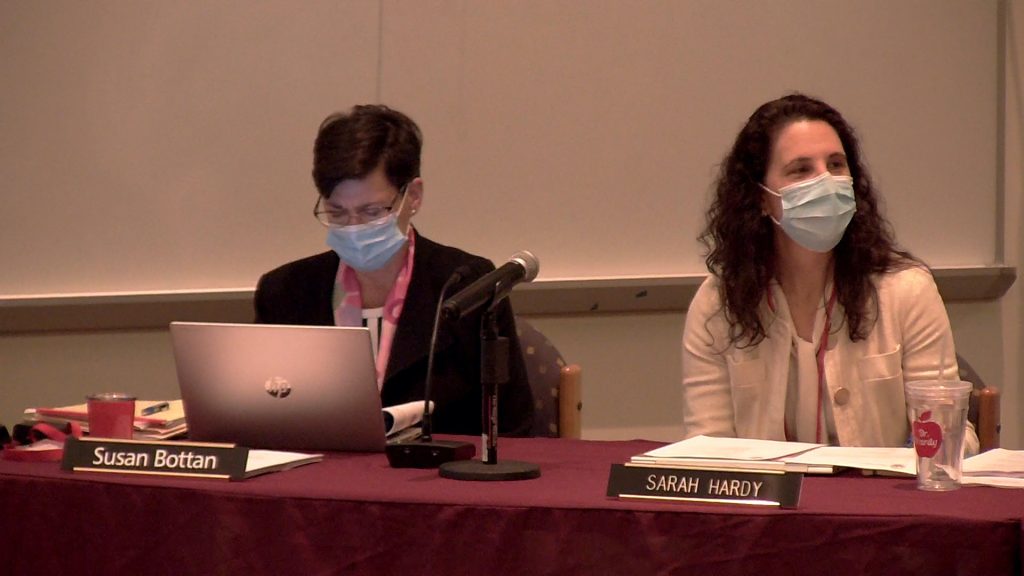
Statewide, there was a decline in the number of students in grades three through eight who tested in the meeting expectations or exceeds expectations categories. Statewide, the decrease for grades three through eight in ELA was 6% and in math was 16%. While Reading’s numbers also declined in these areas with a 4% decrease in ELA and a 15% decrease in math, Hardy did note that “In each category, Reading outpaced the state, as we would expect.”
Hardy also shared the significant difference in the achievement of high needs students, economically disadvantaged students, African-American and Black students, and Hispanic students compared to overall student results. She also noted that some of these disparities are trends that are unrelated to the pandemic.
Hardy stated that the next steps include digging deeper into the data on specific standards that may need improvement, examining student and family feelings of belonging in schools, reviewing the current model of monitoring learning, and examining access to grade-level standards. “Understanding why our students performed a particular way will aid future growth,” Hardy added.
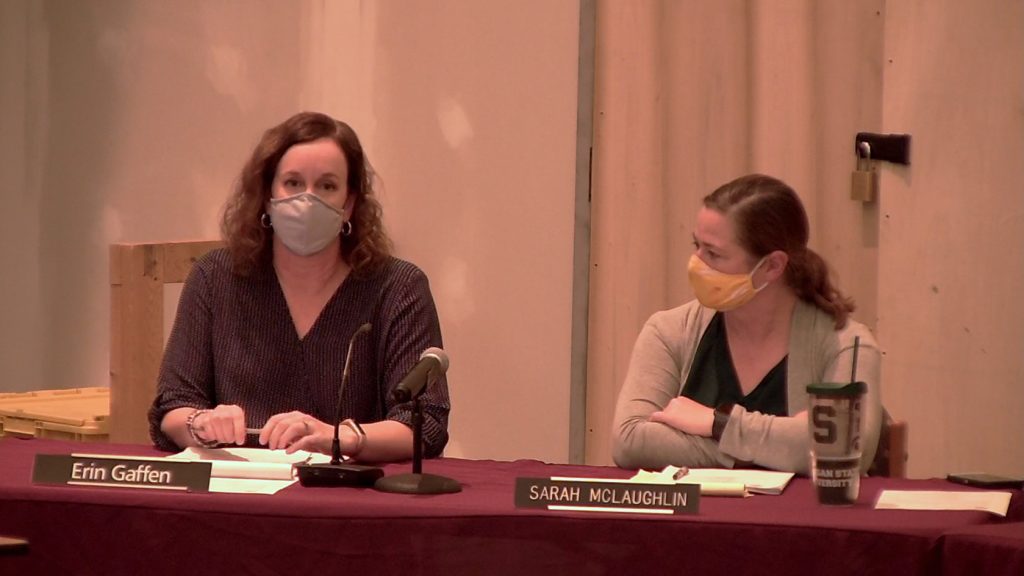
Gaffen expressed appreciation for the context given as well as the acknowledgment that the results “are not a rosy picture.” She then asked about performance from school to school. Hardy responded that the Department of Elementary and Secondary Education cautioned against school level comparisons as not a good use of moving forward. However, she did suggest some cross-school interaction could help determine some best practices. Member Sarah McLaughlin noted that COVID helped create a “kick-in-the-butt we needed to identify gaps in learning.” Wise noted that the results highlighted that “Our equity goal is . . . critical to all of us.”
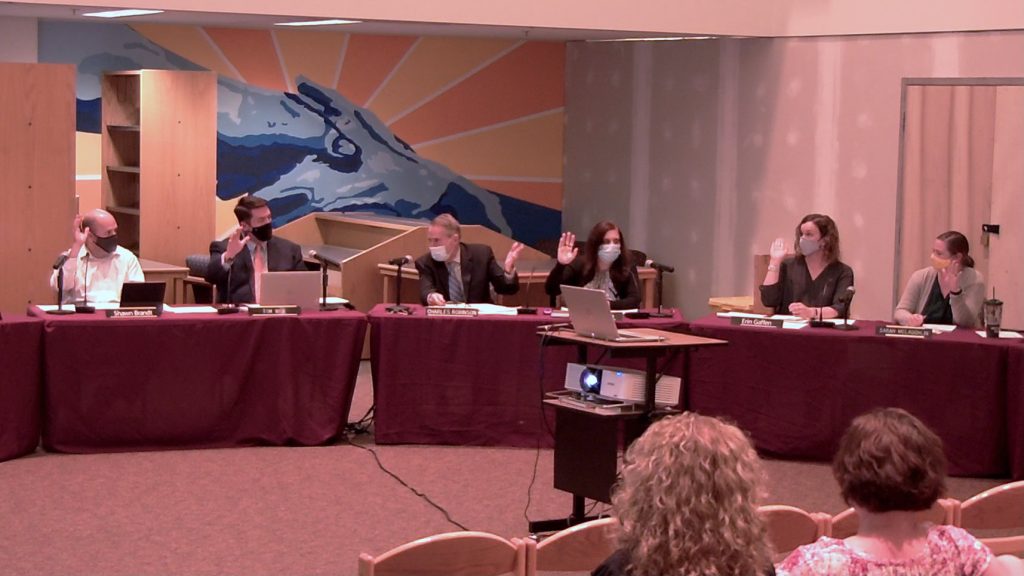
The committee also voted 6-0 to approve updated goals for the superintendent; it reviewed COVID vaccination information for staff, it reviewed strategy for the presentation of full-day kindergarten as a use for American Rescue Plan Act funding to the Finance Committee, and received a brief enrollment update, noting that there are 101 fewer students in the district than last year. The committee opened, then tabled a discussion regarding a Reading in Reading Advisory Committee to their November 4 meeting.
The School Committee adjourned at 11:25 pm.

